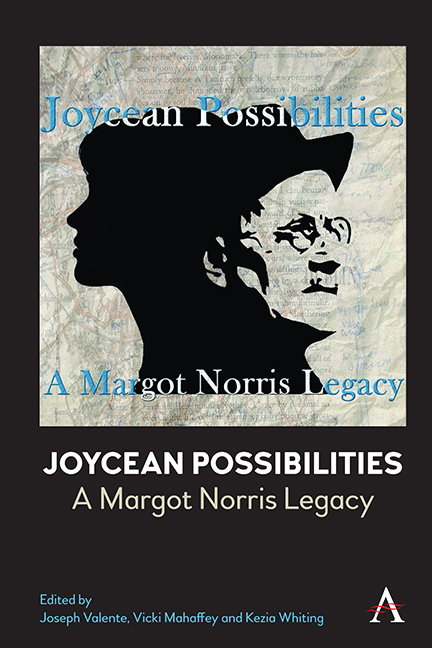7 - Inorganic Form From James Joyce to Eleanor Catton
Published online by Cambridge University Press: 20 April 2024
Summary
I
Among the many strengths of Margot Norris's extensive writing on Joyce is her concern for the reader's experience of the text. Whether peering through the surface textures of Dubliners to detect the subtle play of power and desire, imagining the first-time reader of Ulysses enjoying its surprises and tessellations, or drawing on recent theoretical movements to illuminate the workings of Finnegans Wake, her critical writing does ample justice to the unique way an encounter with the Joycean text challenges, puzzles, disconcerts, but always rewards. In this essay I will explore one aspect of Joyce's formal innovation, taking my cue from this characteristic of Margot Norris's writing by examining the contribution it makes to the reader's experience of Ulysses, and consider some writers who followed in Joyce's footsteps.
Of course, “the reader” is not an unproblematic concept. In the first instance, the reader is inevitably myself, but I will do my best to exclude what might be idiosyncratic about my responses. The value of a community of critical readers, such as Joyce is lucky to have, is that idiosyncrasies— as likely to be a feature of “veteran” as of “virgin” readings, to use Norris's terms—can be spotted and ironed out. “Experience,” too, is a complex term. It figures centrally in several philosophical schools, notably empiricism, with its assumption that knowledge derives from sensory experience, phenomenology, sometimes labelled the “philosophy of experience,” and existentialism, which emphasizes personal decisions. I propose to use the term in a fairly colloquial sense to refer to what happens, mentally, emotionally, and physically, in the process of literary reading. What I don't want to imply by using the term is that a theory of the literary work as experienced event is primarily an empirical—that is to say, a psychological or neurological— theory interested in what goes on in reader's brain (or, for that matter, a physiological theory interested in what goes on in the rest of the body), even though any conclusions that might be drawn about the reader's experience might be mappable onto these domains.
Literary form is usually discussed in terms of the dictum that form and meaning are inseparable, a dictum that goes back at least to the Romantics. The notion of “organic form,” introduced most influentially into English literary criticism by Coleridge (following A. W. Schlegel), continues to surface right up to the present.
- Type
- Chapter
- Information
- Joycean PossibilitiesA Margot Norris Legacy, pp. 87 - 104Publisher: Anthem PressPrint publication year: 2022



